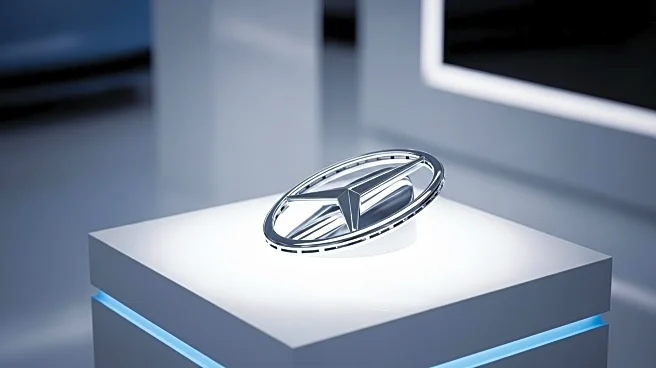What's Happening?
Mercedes-Benz has officially denied rumors of a potential engine supply agreement with BMW. Markus Schaefer, Chief Technology Officer at Mercedes-Benz, stated that the company has no plans to use external engines, particularly from a competitor like BMW. The rumors suggested that Mercedes might use BMW's turbocharged 2.0-liter gasoline engine in future models to reduce development costs and comply with emissions regulations. However, Schaefer confirmed that Mercedes has developed its own modular engine family, FAME, which is compliant with global emissions standards. The denial comes as Mercedes accelerates its electrification strategy while maintaining internal combustion engines.
Why It's Important?
The denial of the engine supply agreement underscores Mercedes-Benz's commitment to maintaining its engine identity and technological independence. By developing its own modular engine family, Mercedes ensures compliance with emissions regulations while supporting its electrification strategy. This decision impacts the automotive industry by reinforcing the competitive dynamics between major manufacturers and highlighting the importance of innovation and self-reliance. Mercedes' approach may influence other automakers to prioritize in-house development and technological advancements, shaping the future of automotive engineering.
What's Next?
Mercedes-Benz will continue to focus on its electrification strategy, offering electric versions of popular models like the GLC. The company will also maintain its lineup of internal combustion engines, including V-12s and V-8s, ensuring a balance between traditional and electric technologies. As the industry shifts towards electrification, Mercedes' decision may prompt other manufacturers to reassess their strategies and partnerships, potentially leading to new developments in engine technology and emissions compliance.
Beyond the Headlines
Mercedes-Benz's decision to maintain its engine identity highlights the cultural and technological significance of brand heritage and innovation. The move reflects the company's commitment to sustainability and compliance with global emissions standards, contributing to environmental goals. The focus on in-house development emphasizes the importance of technological independence and innovation in the automotive industry, potentially influencing long-term shifts in manufacturing and engineering practices.








